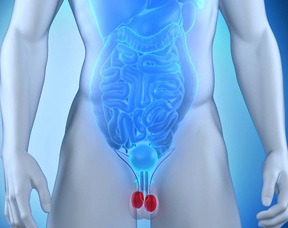Orchitis is an inflammatory condition of one or both testicles in males, generally caused by a viral or bacterial infection. Inflammation of the testis is accompanied by swelling, pain, fever, and a sensation of heaviness in the affected area. The most common virus that causes orchitis is mumps. It most often occurs in boys following puberty. Orchitis usually tends to develop within 4 – 6 days after the onset of mumps. However, because of childhood vaccinations, mumps is now a rare occurrence in the United States. Orchitis can occur along with infections of the prostate or epididymis. Orchitis can also be caused by sexually transmitted infections (STI’s) such as gonorrhea or chlamydia.
Types of Orchitis
There are basically two ways by which an individual can develop Orchitis, one is bacterial orchitis and the other is viral orchitis.
Bacterial orchitis – Most often, bacterial orchitis is the result of epididymitis, an inflammation of the coiled tube (epididymis) that connects the vas deferens and the testicle. The vas deferens carries sperm from your testicles. When inflammation in the epididymis spreads to the testicle, the resulting condition is known as epididymo-orchitis.
Viral orchitis – Most cases of viral orchitis are the result of mumps. About one-third of males who contract the mumps after puberty develop orchitis during their course of the mumps, usually four to six days after onset.
Prevention
Getting vaccinated against mumps will prevent mumps-associated orchitis. Safer sex behaviors, such as having only one partner at a time (monogamy) and condom use, will decrease the chance of developing orchitis as a result of a sexually transmitted disease.
When To Seek Medical Attention
All testicle related problems should be examined by your healthcare provider. Call your local emergency number (such as 911) or go to the nearest emergency room if you have sudden pain in the testicle.
Prognosis (Outlook)
Getting the right diagnosis and treatment for orchitis caused by bacteria can most often allow the testicle to recover normally. You will need further testing to rule out testicular cancer if the testicle does not completely return to normal after treatment. Mumps orchitis cannot be treated, and the outcome can vary. Men who have had mumps orchitis can become sterile.


